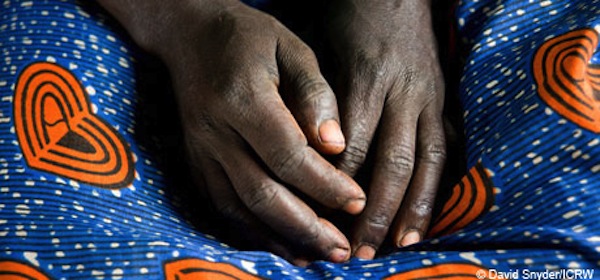Image courtesy ICRW
‘Are we not raped every day when we walk down the street and are leered at ? Are we not raped when we are treated as sex objects, denied our rights, oppressed in so many ways ?’
Archives of Manushi, written by Sohaila (1983)
Sri Lanka reminds one of one’s gender. To be female in a public bus is to be visually harassed (or more) and to be reminded of the persistent failures of the establishment to address those issues which are truly important. Organisations such as Sri Lanka Unites have attempted to shine a light on this issue with their Show You Care campaign. Yet, public harassment deserves attention on a larger, central government scale in a manner which considers multiple regions.
This lack of personal safety is yet another reminder of the stark inequality in this nation. The lives of bus-folk are worlds apart from those at the other end of the spectrum. The normalisation of cat-calling, hooting and jeering has meant that, while walking down a public road is a form of entertainment for those at the source, it is unsettling and frustrating for the many women who have no option. Life is an everyday struggle for the majority of society, a struggle which is acknowledged yet accepted as given. The beauty of change is not embraced and the upper classes fail to respond to their collective responsibility. The cycle continues.
Using public transport during peak hours is a nightmare. Deliberate groping, leering, and worse have become the norm. It is disturbing that this sort of behaviour is accepted and expected, only permitting it to continue. Silence is unintentional consent. This makes it difficult to distinguish between the ‘good guys’ and the ‘bad guys’. Outspoken male feminism, although it exists, is very limited. But, this, I feel, is the only way forward in a culture which tends to privilege men. There is a need to understand that these issues are not ‘women’s issues’, not only because it is not only women who are affected but also because framing them in this manner tends to criminalise the victim. There is a need for men to break through peer cultures which prevent them from acting differently. There is also a need to understand that issues of greater consequence such as rape and domestic violence are not the only concerns in this frame.
It is concerning that such issues are frequently swept under the carpet in the face of flash projects such as our newest international airport and other such physical embellishments. The current stream of real estate projects aimed at transforming the aesthetic landscape of Colombo and promising torrents of investment demonstrates the uni-polar nature of existing development efforts. Krrish Square promises a ‘new destination to life, enjoyment…’ but who for? The minority who also indulge in the other fruits of life which Colombo life has to offer. The ‘exclusivity’ of this and other projects does not bode well for a Democratic Socialist Republic. For Sri Lanka to blossom as a nation, it is the entire nation which must benefit.
It is saddening that a country which has immense potential, especially in terms of its human capital, is repeatedly wrung on ethnic lines, an issue which is being pushed to the fore continuously as other problems waltz by. The fact that it is this issue which ties Sri Lanka together with international fora speaks for itself. To be Sinhalese, Tamil, Muslim or Burgher is irrelevant when it comes to addressing universal issues such as the lack of pavements on Peradeniya Road or the corruption/inaction/poor service inherent in most Municipal Council systems. There is no doubt that Sri Lanka’s continually resurfacing ethnicity dialogue is of importance given recent events and those three decades ago; however, perhaps what can bring us together is to move on from the past and to collectively address problems faced by all.
Questioning authority is a redundant trade, and the situation has reached a ‘what’s the point?’ stage. The irony in this apathetic attitude lies in its inability to stimulate the change which would (or could) resolve issues. An equal society – by gender, income, region, ethnicity – seems a far cry to most but a lack of faith brings with it a lack of action. There is a need to rouse these demons in public discourse, a need to de-taboo and a need to open spaces of discussion for those victimised. A change in attitudes is not an easily achievable feat yet the hope for progress rests on this possibility.

